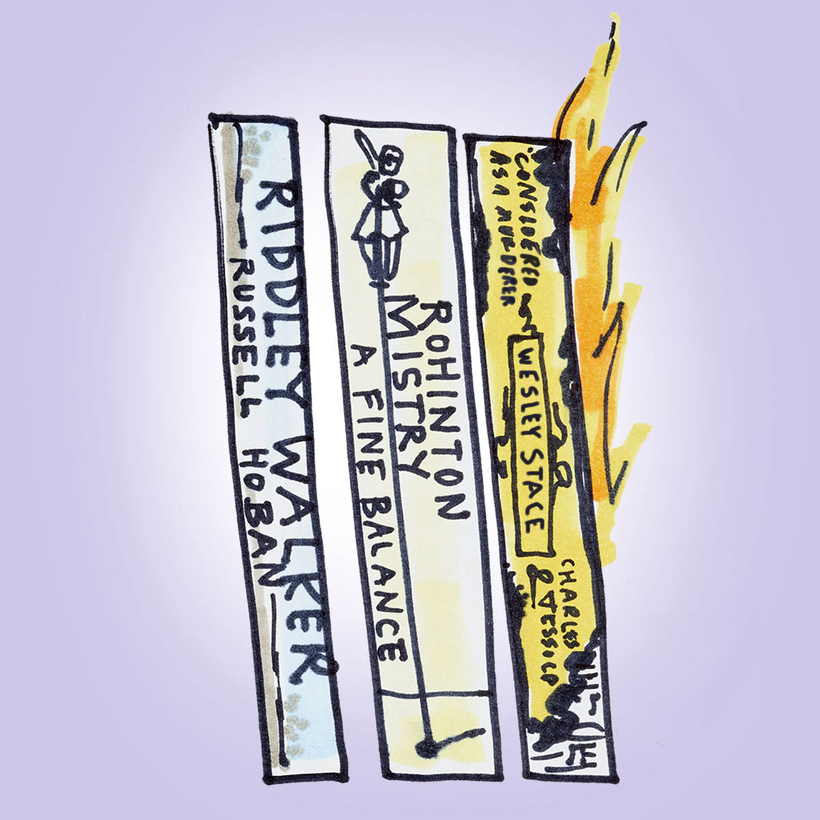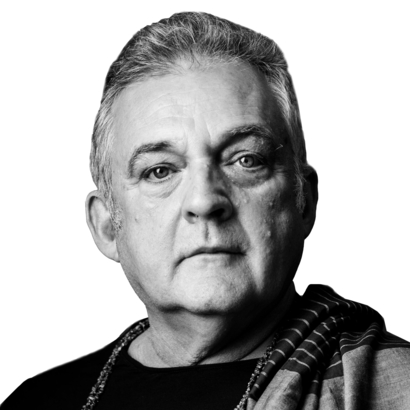He also writes: Morris, a modern-dance master and founder of an eponymous dance company, tells the story of his childhood and his career in a memoir, Out Loud, available now from Penguin Press. Here, Morris, known for making dance more accessible to people across the world, recommends three books that elicit the kind of reaction he hopes audiences will feel when watching his own choreographic inventions: a sense of excitement, beauty, and novelty.
Riddley Walker, by Russell Hoban
When I first read this book, not long after it was published, I was completely overwhelmed by the beauty of its language. The ancient British mysteries, the puppet shows, the place names, the savage and sophisticated ways of survival in this grim and sarcastic future culture were at first puzzling and then entirely revelatory. It is a tender and addictive saga that bears, even requires, repeat reading.
I’m rarely drawn to science fiction—it’s not that I specifically seek out impenetrable, fabricated languages or post-nuclear-holocaust, dystopian settings. In fact, the opposite is generally true. But somehow Riddley Walker grabbed me by the balls and changed my thinking. I still incorporate phrases and terms from this novel in my everyday vocabulary.
A Fine Balance, by Rohinton Mistry
This is easily one of the greatest books I’ve ever encountered. It fired me up and touched me in a very profound way. I have been traveling to India every couple of years for decades, and I am persistently drawn to the extremely rich and complicated culture, in particular the music of South India, but including the various forms of classical music and dance. I am very comfortable in India and feel welcomed by the people I have met there over many years.
When this book first came out, I voraciously read it leading up to and during a long visit to India; I was quite surprised to notice that many people I encountered were in the middle of reading the exact same book. It is an overwhelming chronicle of a very turbulent and difficult time during Indira Gandhi’s prime ministership, “the Emergency.” I resist using the term Dickensian, but the enormous number of characters and their complex communities and relations make it necessary. It is heartbreaking and jubilant and a very important book.
Charles Jessold, Considered as a Murderer, by Wesley Stace
I probably shouldn’t mention this book because Mr. Stace is a good friend of mine and the co-author of my memoir, Out Loud; however, I am compelled to praise this beautiful story. It is clever (that’s a very good thing), and it is also ornate, mysterious, sad, and unusually musical. Set in the wonderfully detailed music world of interbella England, it is based on the famously grisly life of the radical Italian madrigalist Carlo Gesualdo: he who murdered his wife and her boyfriend and got away with it. I love the humble musicology, the intrigue, and the opera-house glamour. Historical fiction? I don’t know, but it is great. I love this book of Wes’s and all the others as well.


